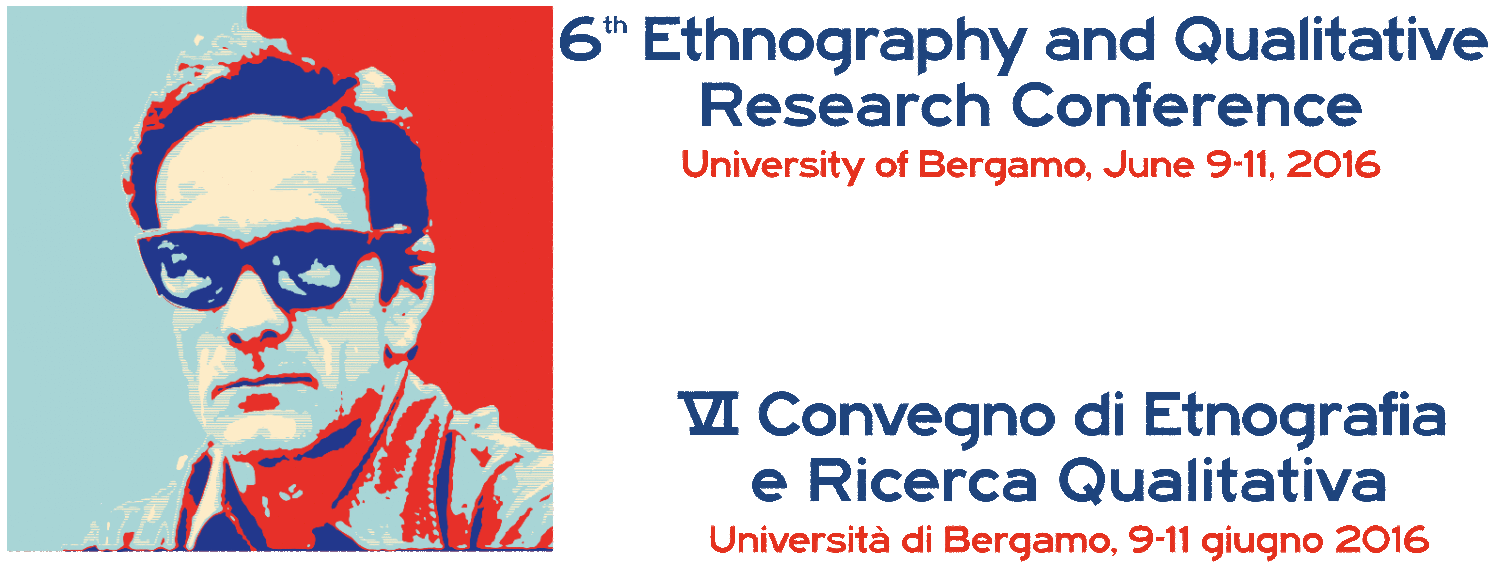Subjectivity, surveillance and control. Ethnographic research on forced migration towards Europe
Convenors: (University of Milano ) & (Univesity of Milano Bicocca)
As a strategic point of observation on forced mobilities, the Euro-Mediterranean area is also the place where is possible to analyze the policies of control, selection and monitoring of refugees and asylum seekers.
In this articulated and complex scenario, migratory movements are both framed by historical forms of mobility, and trace new routes. In order to contain the multiple mobilities, national states, EU institutions and international control agencies increasingly shift and externalize their borders outside the European territories, expanding the surveillance and the selection scope. The reinforcement and geographical extension of the externalization policies of European borders (i.e. the process of Khartoum, the delegation to Frontex of the rescue operations, military missions such as EUNAVFOR Med) go hand in hand with a narrowing of the space for the migrants’ rights. Migrants are forced to find autonomous spaces of action, where protection policies shelter them less and less.
This session focuses on ethnographic research in order to analyze the relationships that actually occur between policies, social forces and forms of subjectivity. The premise is to offer an analysis on migration for asylum in Europe, starting from the concrete experiences of migrants once they arrived in Europe. Particularly, we focus on empirical research that highlight the tension between structural dynamics associated with the control and governance of forced migration, and the social practices of subjects, who – moving between legal and “illegal” regimes – attempt to rebuild their lives after they escaped from places of first arrival or crossed national borders to reach other social contexts.
The panel aims to provide a discussion on the restriction of the European space starting from the experience of landing and transit, and from the everyday practices of migrants. Examples are the movements of migrants through which they challenge the legal and territorial borders and the agreements of Schengen and Dublin; the tent camps built close to the agricultural areas to be employed in the harvest work; the temporary settlements positioned in extemporaneous places or public places such as the train station Milano Centrale; Calais and Ventimiglia; homes and tent camps near the places of entry into the reception system, for example in large urban areas of central/northern Italy, or in places such as the hinterland of the southern regions; the attempts to escape the finger prints procedure.
We are interested in ethnographic contributions that address the following issues:
- migration control: policies of military intervention and/or coercive intervention, humanitarian regimes, surveillance policies and practices
- the political construction of regime of regularity/irregularity
- camps and confinement forms: regimes, selections, surveillance and abandonment policies and practices
- at the margins of the protection system: transits, border-crossing, stationing, entrance zones




